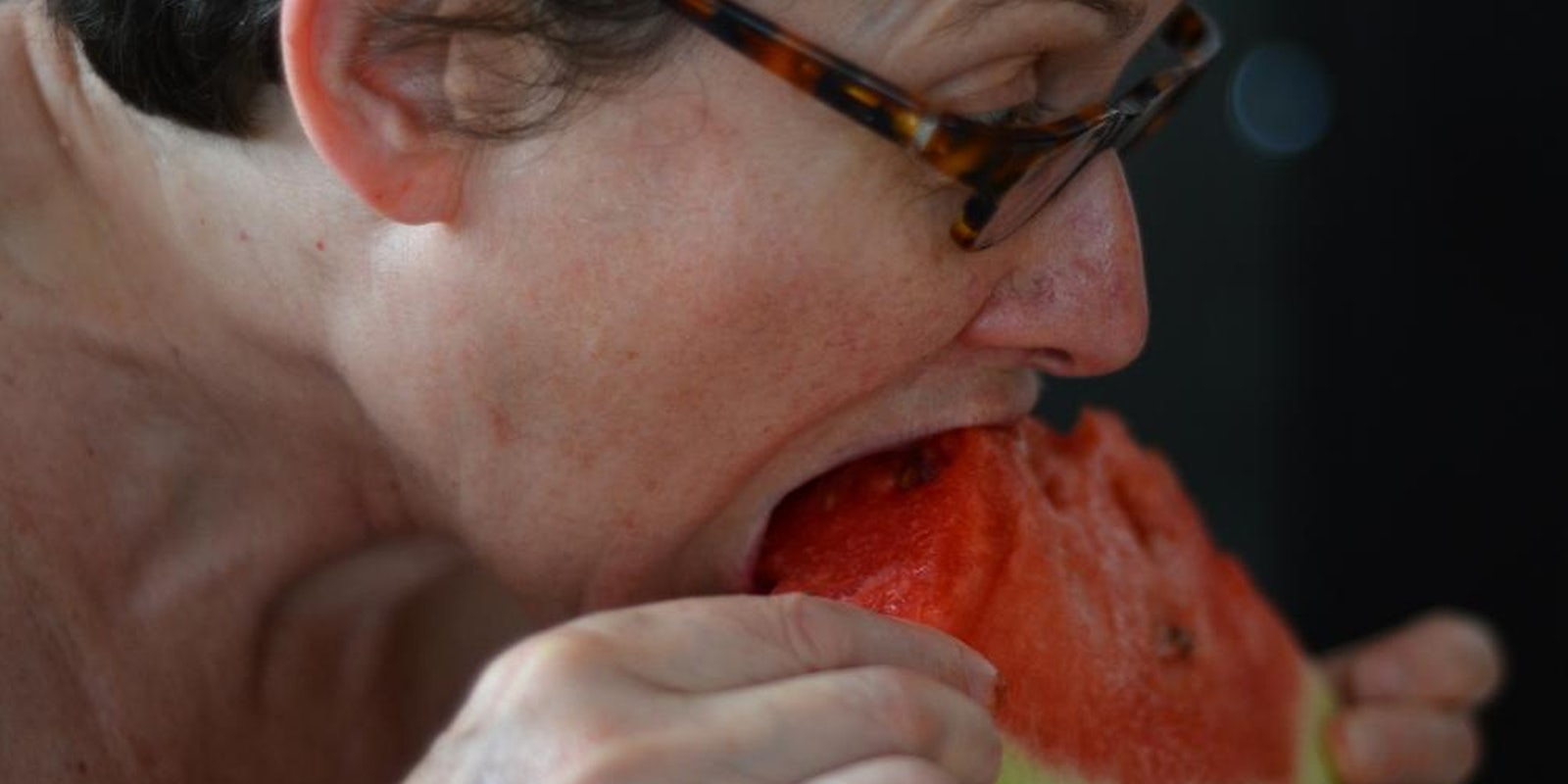You know that Jennifer Lopez movie Enough? Sometimes my friends and I will reference it when we’re exasperated about something. Too many twee cupcake shops in your neighborhood? Your coworker won’t stop talking about her recent breakup? Just scream, “I feel like Jennifer Lopez in Enough!” and they’ll get the point immediately.
Well, today I, much like Jennifer Lopez, have had Enough. Not with cupcakes or coworkers, but with wearable fitness trackers and apps that try to shame you into losing weight. The latest entrant in the genre is the Bite Counter, a wearable wristband that scans your wrist roll motion to detect whether you’re about to chomp on a piece of food, then reaches out and slaps you and calls you a fatty in a judgmental British nanny accent. (That last part is an assumption.)


Created by Eric Muth, a psychology professor at Clemson University, the Bite Counter is designed to curb overeating habits by measuring how many bites you take per day. Because weight loss is difficult for people to consistently keep track of, the Bite Counter is designed for long-term use: “Our idea from the get-go is to have a simple device that people will wear for a long time because weight loss and weight gain happen over a long period of time,” Muth recently told WSJ Live.
So how many bites, exactly, does the Bite Counter want you to take per day? Muth and his fellow researchers estimate that 100 bites per day is ideal for men and women to lose weight. I don’t know about you guys, but I probably take 100 bites per meal, so that number doesn’t sound quite right to me, but Muth also says that taking smaller and slower bites will also help expedite the weight loss process.
At face value, the Bite Counter seems like just another weight loss and fitness tracking device that exceptionally anal yuppies can use to make themselves feel better about their exercise and eating habits. But there’s also undeniable potential for the Bite Counter to be dangerous, particularly for users who might have a history of eating disorders.
Tracking the number of bites you take in a day and shaming yourself for failing to live up to your weight loss goals are not habits of a healthy person; they’re symptoms of severely disordered eating habits. And even if you’re just trying to shed a couple of pounds before your college reunion and you have no history of an eating disorder, becoming unnaturally fixated on your caloric intake and the number of bites you take per day is a great recipe for developing one.
H/T Yahoo Health | Photo by Simon Blackley/Flickr (CC BY ND 2.0)


